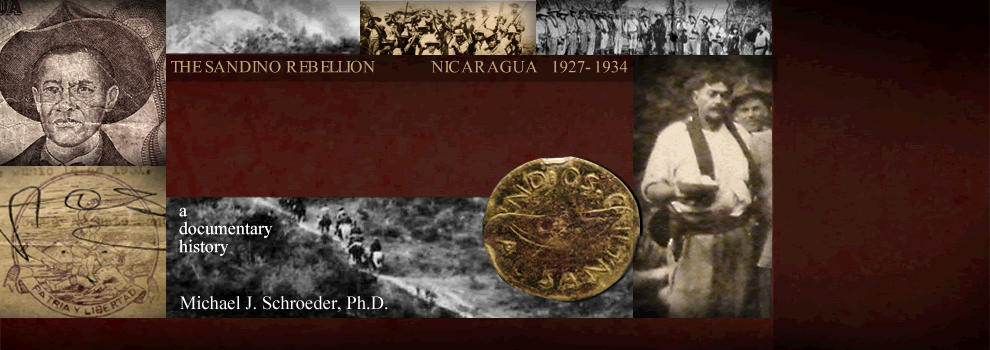|
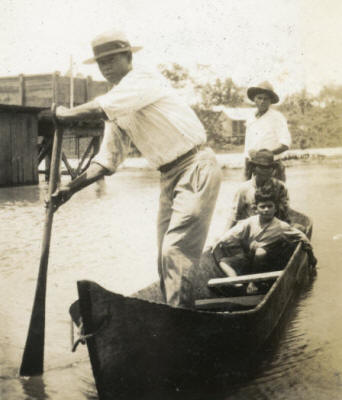 THIS IS THE SECOND PAGE OF
DOCUMENTS FOR THE PERIOD AFTER 1932
on Nicaragua's Caribbean Coast region, housing documents
dated from January 1934 through the end of the 1930s.
THIS IS THE SECOND PAGE OF
DOCUMENTS FOR THE PERIOD AFTER 1932
on Nicaragua's Caribbean Coast region, housing documents
dated from January 1934 through the end of the 1930s.
As we move into the months & years
after Sandino’s assassination
in February 1934, we see
only faint echoes of the nationalist
rebellion and social revolution he
sought to bring to the Coast.
As before, Miskitus & Creoles
continue to petition the British
government for protection from the
tyranny of the Nicaraguans.
Indeed, the British Foreign Office
receives so many Costeño petitions
that in 1937 it finally draws up a
crisp official summary of the
history of the relations & treaties
concerning Her Majesty’s Government
and Nicaragua’s Atlantic Coast (20
February 1937). One such
petition, penned in April 1936 by
the Jamaican D. E. Ferguson,
expresses sympathetic for the plight
of the Miskitu Indians and recalls
the days “when the country was
over-run by Sandino. At that
time many villages were pillaged and
the people left destitute of all
food . . .”
Ferguson’s comment here is one of
the few mentions of Sandino
on the page. Another comes in
Bishop Guido Grossman’s brief
history of Moravian missionary work
in Nicaragua (in German), which
underscores Karl Bregenzer’s murder
and the troubles caused by Sandino
(1 January 1934). The last
comes in USMC Capt. John C. Wood’s
February 1939 article in Marine
Corps Gazette, “Sandino Strikes
Again” reprising the April 1931
events at Logtown near Puerto
Cabezas – an exemplar of a larger
genre in Marine Corps Gazette
and The Leatherneck
that add little new information and
are not included here.
The 1939
Moravians’ Meet Nicaragua
pamphlet is pretty nifty,
especially its map of Moravian
missions. The Moravians'
annual reports convey much useful
information, but very little on any
legacy bequeathed by Sandino.
Because as we have seen on these
pages, at the end of the day for the
Coast as a whole, there really
wasn’t much of one.
|
|
PERIOD MAPS
|
|
1894 mosquito
shore

27 MB,
library of congress
|
1920s
Standard Fruit

6.5 mb,
US National archives
|
1928 Rio wanks
Patrol

3 mb, us
national archives
|
1931 Moravian

2.4 mb,
comenius press
|
|

|
1.
1 January 1934.
"Missionsblatt der Brüdergemeine," by
Bishop Guido
Grossman, Moravian Church, 1934,
p. 1.
|
|

|
2.
1 January 1934.
"Missionsblatt der Brüdergemeine," by
Bishop Guido
Grossman, Moravian Church, 1934,
p. 2.
|
|

|
3.
1 January 1934.
"Missionsblatt der Brüdergemeine," by
Bishop Guido
Grossman, Moravian Church, 1934,
p. 3.
|
|

|
4.
1 January 1934.
"Missionsblatt der Brüdergemeine," by
Bishop Guido
Grossman, Moravian Church, 1934,
p. 4.
|
|

|
5.
1 January 1934.
"Missionsblatt der Brüdergemeine," by
Bishop Guido
Grossman, Moravian Church, 1934,
p. 5.
|
|
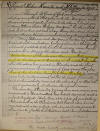
|
1. 1
January 1934.
Report of Kiha-Karata and Klillna for
1933, J. A.
Fisher, Moravian Church, p. 1.
|
|
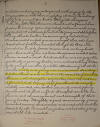
|
2. 1
January 1934.
Report of Kiha-Karata and Klillna for
1933, J. A.
Fisher, Moravian Church, p. 2.
|
|
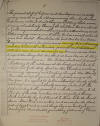
|
3. 1
January 1934.
Report of Kiha-Karata and Klillna for
1933, J. A.
Fisher, Moravian Church, p. 3.
|
|
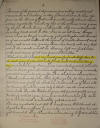
|
4. 1
January 1934.
Report of Kiha-Karata and Klillna for
1933, J. A.
Fisher, Moravian Church, p. 4.
|
|
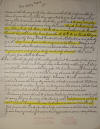
|
5. 1
January 1934.
Report of Kiha-Karata and Klillna for
1933, J. A.
Fisher, Moravian Church, p. 5.
|
|
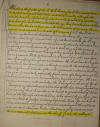
|
6. 1
January 1934.
Report of Kiha-Karata and Klillna for
1933, J. A.
Fisher, Moravian Church, p. 6.
|
|
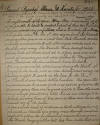
|
1 January
1935.
Annual Report of Wawa & Karata for 1934,
J. A. Fisher,
Moravian Church, p. 1.
"For eight months
of the year, May-Dec. I was away so it
is not possible to write a perfect
report of these two filials: The
year opened very propitious, and a
brotherly Spirit was manifested when on
the 7th two dozen from the Karata
congregation paid us a visit here.
Our Church could scarcely accommodate
all who came, outside and on the steps
were many. The Karata Choir
several nice pieces, both at noon and at
4-6 p.m, and earnest words of
encouragement were spoken by Merijildo
and Paulinus: they then returned home at
dusk. ¶ Not very good was
the attendance during the Week of Prayer
on the male side as over twenty went
away on Sunday night to work on the line
for the Co. In Karata it was much
better however. This year the
inconvenience to secure food was not so
great as the previous year; there was a
good yield to those who made large
enough plantations, still drones are
always to be found in every hive of
bees, and so these did raise the usual
cry of “No food”. ¶ A few
serious cases of sickness in both
villages, but only one death in Karata
of a young man through careless neglect
to follow the professional advice that
was given. The Wawa Congregation
lost two Com. Sisters that were . . . "
|
|
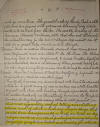
|
1 January
1935.
Annual Report of Wawa & Karata for 1934,
J. A. Fisher,
Moravian Church, p. 2.
" . . . sick for
some time. The great lack of Ready
Cash is still felt and it is feared will
get worse because very little work is to
be had from the Co. The weekly
loading of the Banana Steamers
continues,, still that does not
alleviate the situation any for the 4 or
5 villages dependent on it, still it’s a
great help, small as it is though.
¶ Wawa.
Here as well as Karata several new
members were Confirmed and admitted to
the Ho. Com. On Palm Sunday here
11 were confirmed, 2 adult heathen
baptized, 9 readmitted, and 5 children
of Xtian [Christian] parents baptized.
On other days during the previous month
6 couples married. ¶
Karata.
Here too I marred 5 couples, baptized 9
infants, and confirmed 7 and readmitted
four. ¶ Regretfully however
one discordant note has to be sounded
which is: a good many of our members are
still loathe to part with their old
custom, though repeatedly told its
neither brotherly nor Christianly,
moreover the Gospel has been too long
taught among them to still persist in
that most aggravating way of telling and
retelling stories much of which is
hearsay. Simple things that
could have been peaceably in half an
hour or by a dozen words are sometimes
prolonged, causing abusing language,
going to law, hatred and malice, for
which . . . "
|
|
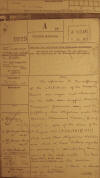
|
1.
22 June 1935.
Petition for Protection from Nicaraguan
Government, A. E.
Hibbert, British Consul Managua,
to Foreign Office UK, London, p. 1.
"The references
to the sufferings of the inhabitants of
the Mosquito Reserve as vague and
rhetorical but the letter does suggest
that the Nicaraguan Government may not
be fulfilling their obligations under
the Harrison-Altaminano Treaty
(A-1511/1511./8) in spite of the decree
of the 6th August 1932 (A 7076/98/8 of
1932) which made these obligations
mandatory and which we have hitherto
regarded as providing a satisfactory
termination of the whole matter.
We have heard nothing further about the
position since 1932 and I think we
should ask for a response."
|
|
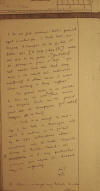
|
2.
22 June 1935.
Petition for Protection from Nicaraguan
Government, A. E.
Hibbert, British Consul Managua,
to Foreign Office UK, London, p. 2.
"I do not feel
convinced that a general report is
called for. I think that one
despatch to Managua and [?] 1st October
1931 [A 5372/656/8] should still be one
guide – particularly his passage in para
3 that “You who consider each use that
may arise on its merits and conditions
unofficial to obtain [leaders] in uses
where hardship is being suffered.”
¶ The present letter is an
invitation to tear up the 1905 treaty
and annex the Mosquito Coast, on the
general ground that the Nicaraguan gov’t
[could] disregard the treaty. ¶
I think it is enough to send a copy of
the letter to Managua with visits to
continue to be guided by our 1931
instructions above mentioned and to make
inquiries through the British Consul at
[ - - -] as to any grievance from which
Mr. Hebbert may be suffering. ¶
There is no longer any British Consular
Officer."
|
|
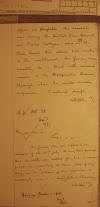
|
3.
22 June 1935.
Petition for Protection from Nicaraguan
Government, A. E.
Hibbert, British Consul Managua,
to Foreign Office UK, London, p. 3.
"Officer at
Bluefields, the nearest one being the
British Vice-Consul at Puerto Cabezas,
also on the East Coast but about 200
miles to the northward. Mr. Gurney
may possibly be in touch with someone
nearer to the Mosquito Reserve through
whom he could made inquiries. I
submit draft. ¶ Mr. Gurney
has not replied to my dispatch of the
22nd July. He may have assumed
that no reply was called for, but it
would perhaps be interesting to learn
what, if anything was the outcome of his
inquiries. I accordingly submit a
draft letter to Chancery."
|
|
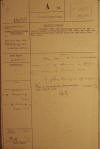
|
1.
11 July 1935.
Petition for British Control of Mosquito
Reserve, Mr.
Edward Wilson & others,
Bluefields, p. 1.
"There seems to
be a considerable movement of opinion in
favor of a return to British rule.
¶ . . . There is no particular
grievance here to be looked into."
|
|
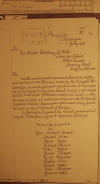
|
2.
11 July 1935.
Petition for British Control of Mosquito
Reserve, Mr.
Edward Wilson & others,
Bluefields, p. 2.
"To the Under
Secretary of State ¶ Foreign
Affairs ¶ Horse Guards
¶ Downing Street ¶
England London. ¶ Sir;
¶ We the undersigned
representatives of the different
sections of the Atlantic Coast viz the
Mosquito Reservation do hereby forward
you this letter for the approval of His
Majesty The King of the British Empire,
informing you that the Nicaraguan
Government violated the "Treaty" in
every direction no part of it never was
complied with. We thereupon
requested that the Nicaraguan government
ruling power do cease on the 1st
September of this year. ¶ We
thereupon requested the British
government ruling the Reservation as
from 1st September of this year. ¶
We have the honour to be ¶
Sir ¶ Your obedient
servants, ¶ Edward Wilson
¶ Steven Joseph ¶
Richard Manor ¶ Pedro Joseph
¶ James Hodgson ¶
George Lockwood ¶ Lazarus
Clair ¶ Daniel Walters
¶ Vertic Hodgson ¶
Jeremiah Walters ¶ . . . "
|
|
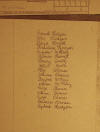
|
3.
11 July 1935.
Petition for British Control of Mosquito
Reserve, Mr.
Edward Wilson & others,
Bluefields, p. 3.
" . . . Samuel
Hodgson ¶ John Hodgson
¶ David Howell ¶
Halstead Hodgson ¶ Augustus
Willson ¶ Thomas Howell
¶ Henry Smith ¶ Willie
Smith ¶ Peter Soloman
¶ William Clarence ¶
Danford McRay ¶ William
McRay ¶ George Alvarice
¶ William Thomas ¶
George Thomas ¶ Charles
Brown ¶ Egbert Hodgson"
|
|
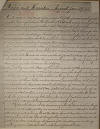
|
1.
1 January 1936.
Wawa and Karata's Report for 1935,
J. A. Fisher,
Moravian Church, p. 1.
“Duty again
requires of us a report of the years’
work just passed, through which the
Grace of God has safely brought us; and
in doing so must admit that He has dealt
more mercy fully with us than we
deserved: so as we look back through the
months, weeks, and days, thinking of our
mistakes and failures, we are
constrained to exclaim “It is of the
Lord’s mercies that we are still alive
because His compassions fail not.”
May these mercies thus lovingly bestowed
on us arouse within us that willingness
to surrender ourselves anew, so that He
might be able to use us more in the
different sphere of work allotted to
each so that the year we now enter may
bring to Him yet greater honour and
glory.” ¶
Wawa:
To begin with, during the last months of
the year a good many of our members were
sick, some for a few days, others for
months, the majority of these their
ailing were of a minor sort, but a few
of them were rather serious;
nevertheless all but three recovered:
two were small children of 3 and 4 years
old, and the other an old Com. sister
whose illness was of a complicated
nature confining her for many months to
her bed. She passed away whilst I
was away but her end was peaceful, was
quite resigned and ready to go. ¶
Of the attendance at the services
especially those on Sundays has been
most satisfactory, an increase has been
noticed, a better attention paid,
proving that the Holy Spirit has been at
work among them, that the Word though
dispensed in weakness and feebly has
been making its power felt, resulting in
making willing some hitherto cold and
indifferent ones. . . . "
|
|
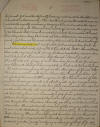
|
2.
1 January 1936.
Wawa and Karata's Report for 1935,
J. A. Fisher,
Moravian Church, p. 2.
" . . . be found:
yet another difficulty looms up and must
be tackled and handled in the same way.
Our New Church proves too small to
accommodate the rapidly increasing
congregation, and must in the near
future be enlarged. Although I can
and do rejoice over the wiping out of
the Church’s Debt, I have to record the
failure of the members to meet their
obligations. Cong. [Congregation]
Cash and all other Collections are
miserably paid just because the same
willing determination to do is lacking.
¶ Times are bad most surely with
of all us everywhere but as said above
what made it possible to liquidate the
debt? The will was there so the
way was found. In our Indian vocabulary
one word is not be found. That
word is “Self-denial”. I can’t
find it. Humbly I do ask, if any
of our Brn [Bretheren] has found it
(perhaps our Esteemed Bishop has) would
be so kind as to tell me the page.
¶ We will not cease firing though
in this New Year of Grace D.V.
Mention must be made before I leave this
congregation of the effects of the
recent Storm up on it. Of a truth
most of the peoples’ cassava grounds are
destroyed: a few completely these having
been made on the low flat savannah land,
and on the rivers’ banks. Also a
good many banana plantations wrecked
but, although even now a scarcity is
felt, from all that I am told, we do not
fear a general starvation as is possible
among our Wangks River Christians.
Scarcity, yes there will be but no
starvation. As said above the
increase of this congregation will be
seen in the statistics by baptism,
confirmations, readmission. Before
leaving Wawa I must not forget to
mention that a blessed Xtmas was spent,
quiet, sober and orderly. In the
afternoon a small “garden party”
realizing a clear profit of $7.00 . . .
"
|
|
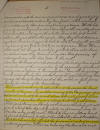
|
3.
1 January 1936.
Wawa and Karata's Report for 1935,
J. A. Fisher,
Moravian Church, p. 3.
" . . . came and
made the announcement was one of great
joy and was celebrated with the “big
love feast” – with several fine
addresses by Brn. from neighboring
villages. With his family arrived
just a short time before the recent
Cyclone that devastated said region,
there he too shared the fate with
others. They are still at their
post. May they be not discouraged
at what has happened, but be able to
realized the guiding hand of our God, be
led to see and prove “That He doth make
all things work for good to those who
love and trust and obey Him: proving
also His promise of always being with
His own to the end.” ¶ Some
new blood was about the same time of his
leaving been injected into the veins of
this congregation by the appointing of
several young men as officers in the
congregation. These all are giving
much satisfaction by their earnest and
diligent labours carrying on the
spiritual part of the work in full force
during the absence of the missionary.
¶ Not so good however was the
attendance at the services the last
quarter of the year. The sudden
ceasing of the Company’s operation on
account of the recent storm was a
staggering blow – as by said operation
they as a village had the first place.
The prop being suddenly withdrawn the
village got out of gear, most of them
depending wholly on it, causing many to
wander away pretty much. Already
they are getting used to it and
beginning to adjust themselves to
present conditions. That too has
seriously affected the financial side of
our work in the congregations whilst one
knowing the true and real . . . "
|
|
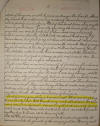
|
4.
1 January 1936.
Wawa and Karata's Report for 1935,
J. A. Fisher,
Moravian Church, p. 4.
" . . . state of
things are unable to press and urge too
hard. Had they learnt to practice
economy and self-denial many would not
be feeling it so hard now. Out of
these hard times some might learn a good
lesson. Generally speaking, the health
of this congregation was none too good:
few of them were very seriously sick, so
serious that they had to seek medical
aid away to Bilwas Karma, but glad to
report them all returned much improved,
some among them permanently cured.
Most gracious has the Lord been to this
Congregation that we lost none by death.
The statistics will show that true
numerical status. Sixteen infants
were baptized, 5 young people confirmed,
one Readmitted and one couple married.
¶ Right now there is no real
scarcity of food here; floods and heavy
showers have certainly destroyed most of
the casada plantations so that a few do
not have any thing, still from others
they get enough, but in a couple months
more when these too give out, the
situation will then become serious
indeed. Steps are being taken to
make soon plantations; already a few
have begun clearing and cleaning up
their blown down plantations of bananas.
¶ The chief worry prevailing is,
however, not “What are we going to eat
shortly”, but “Will there be any work
started so we can earn some ready cash”
concerning that we can only pray, wait,
and trust Him who has told us that “in
order to prevent needless feat to Leave
all to Him in faith. ¶ On
the Church some repairs are needed and
enlarged too, to accommodate the growth
of the congregation to carry out . . . "
|
|
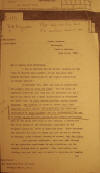
|
1.
14 April 1936.
Letter from D. E. Ferguson, Puerto
Cabezas, to Foreign Office UK, London,
p. 1.
"May it please
your Excellency, ¶ On
November 9th, 1935, the Miskito
Reservation met a heavy loss by storm
and flood. The Red Cross of
different countries sent help for the
sufferers and all I saw of its issues
was a small distribution of foodstuffs
for three days, to about seventy
persons, mostly Spanish speaking.
The Indians, in order to obtain this,
were compelled to give labour, and
practically the whole was confiscated by
Major Viadares (and his confederates)
who was in charge of the National
Guardia of the Miskito Reservation.
Most of the goods were sold to Otto
Lehmann, a German-Jew who is in charge
of the Merchandise Department of the
Bragman’s Bluff Co. which is operating
here. Major Viadares was arrested
for this two weeks ago, and is now in
custody in Managua, while Lehmann,
fearing an arrest, left for U.S.A.
¶ The greatest sufferers I have
ever seen through all my extensive
experiences in many countries, are the
Miskito Indians here at present.
They were honest, law-abiding, and now
they have to resort to stealing and
begging . . . "
|
|
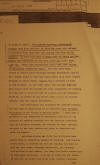
|
2.
14 April 1936.
Letter from D. E. Ferguson,
Puerto
Cabezas, to Foreign Office UK, London,
p. 2.
". . . in order
to exist. The Spanish speaking
inhabitants dragged them into Banditry
by shooting those who refused to
coincide with them when the country was
over-run by Sandino. At that time
many villages were pillaged and the
people left destitute of all food
including their cows, pigs, etc.
Hence this catastrophe found them just
trying to straighten themselves again.
Now they have been forced to vacate
their villages through starvation, and
it is a common sight to see half naked
women with their babies strapped to
their backs, begging for a mouthful of
food or old clothes. On the other
hand, the foreign settlers here cannot
help the Indians for they themselves are
finding it very hard to exist as work is
scarce, and the Bragman’s Bluff Co., (a
branch of the Vaccaro Bros. & Co.) an
Italian concern, will not employ
Britishers. ¶ Our
Vice-Council was dismissed for unknown
reasons, and the Miskito Reservation of
an estimated Five Thousand Britishers is
now without a British Consul. I
have sent a petition to our Ambassador
in Guatemala, also one to the Governor
of Jamaica, showing that the Jamaican
Government has, on a similar occasion,
at Santiago De Cuba, employed an agent
to see that justice was given to
Jamaicans and other Britishers. ¶
Seventeen months ago forty two
Britishers were jailed here on
trumped-up charges of stealing.
One William Edward Lewis, a Jamaican who
was the accused, was kept in jail for
five weeks, brutally maltreated, and
drenched with gallons of salt water.
Our then Vice Consul worked hard to have
Lewis liberated. I am one of those
who was thrown in jail for the first
time in my life, because I pleaded . . .
"
|
|
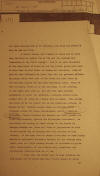
|
3.
14 April 1936.
Letter from D. E. Ferguson,
Puerto
Cabezas, to Foreign Office UK, London,
p. 3.
" . . . for Lewis
knowing him to be innocent, and with our
Consul’s help he was set free. ¶
A second charge was trumped on Lewis and
in this they involved me saying “He is
the man who pleaded his ‘innocence of
the first charge’.” Six of us were
occupants of the same house as Lewis and
as the stolen goods were said to have
been in that house we became all
involved. When at last we were
liberated we found that all our personal
effects and money which were left in the
house had been taken by the National
Guards who had been searching there.
When we were arrested, those of us who
had money in our pockets, it was taken
away from us, and the rest were refused
permission to enter our quarters, a
pointed pistol being pushed into our
faces as a reply when we asked.
This matter was taken up by our Consul
but is not remaining dormant, it appears
to me. William Edward Lewis is
claiming Fifty thousand pounds for false
imprisonment, and I – David M. Ferguson
– Twenty thousand two hundred and fifty
pounds of false imprisonment, against
the Nicaraguan Government. We are
afraid of turning in these claims to the
Consul in Managua because our lives will
thus be jeopardized so that is the
easiest way of dealing with such matters
in this country. At the same time
we cannot leave here to seek either
safety or employment elsewhere because
all our savings were taken, and, as I
have already stated, no Britisher is
given work, consequently, we are without
work, penniless, and practically
starving from day to day. ¶
I know that the Mother Land is busy
watching the Big Lions, but we humbly
beg that “Little Mousie be given . . . "
|
|
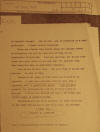
|
4.
14 April 1936.
Letter from D. E. Ferguson, Puerto
Cabezas, to Foreign Office UK, London,
p. 4.
" . . . a
minute’s thought. She is fat; all
is necessary is a good government.
(Please notice clippings). ¶
There are already many deaths among the
Indians caused by starvation and will be
many more if help is not immediately
forthcoming. They are planting,
but as you know crops take some months
to produce even the quickest ones.
Thus immediate help is absolutely
necessary. ¶ Give us the
British flag. The only Flag of
equity and Justice. We pay to
thee. ¶ Please do not reply
to this letter as my life is in
jeopardy. A week ago a Guardia
willfully shot down a Colombian just to
exhibit his power. I was arrested
recently for corresponding with the
British Consul in Managua. I am
closely watched and thus I am having
this letter posted in another country.
¶ Entreating you now to be
cognizant of these facts and in the
right British way to aid us as quick as
possible. ¶ I have, etc.,
¶ (Signed) D.M. FERGUSON. ¶
Copy to His Excellency the Governor of
Jamaica."
|
|
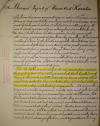
|
1.
1 January 1937.
Annual Report of Wawa and Karata for
1936, J. A.
Fisher, Moravian Church, p. 1.
"The time has
come around again when those who are in
a place of responsibility are required
to render in a report of their work:
hence it is that I am attempting to give
a birds’ eye view of prevailing local
conditions in the two filials above
under my care for the year 1936. ¶
For many years past it has been my
privilege to labour in this portion of
the Lord’s vineyard. Hard times
have been seen and felt but never during
those past years have I witnessed such a
general tough time in every way as the
one through which we have just come.
¶ Lack of work, no money in
circulation, and the great scarcity of
food has without doubt affected those
two congregations in no small degree.
¶ The B.B. Co. was the chief and
only source from which the people of
both these villages earned their
livelihood, through the work said Co.
carried on, hence it was that when the
Co. curtailed their work the blow given
both villages has made a deep and
lasting impression. Not only in
things temporal was this impression made
seen and felt, but also in Spiritual
matters in connection with the Church.
Attendance at the Services on the Lord’s
Day and in the Week fell down to almost
half the usual numbers of times, in like
manner that of the S. School.
Collections suffered and ceased and the
Cong. Cash has followed suit dying
a natural death. With some present
conditions is really bad I admit, but
had our people been used to practice
economy . . . "
|
|
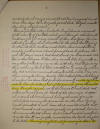
|
2.
1 January 1937.
Annual Report of Wawa and Karata for
1936, J. A.
Fisher, Moravian Church, p. 2.
" . . . and
self-denial, many a one would not been
having such hard times these days. How
true is the proverb that “Willful waste
does bring woeful wants”. ¶
Our people of this village has had a
tough time on account of the scarcity of
food the whole year through, which will
continue yet for many months of this New
Year, for instead of “putting their
shoulders to the wheel” thus trying to
alleviate their distress and better
their condition, simply just roam about
from place to place to get the days’
meal: “Eat and drink for tomorrow we
die” is their slogan. Others there
are who like buzzards among their folks
preying on the little they have
depriving them, reducing these to their
condition by reaping where they did not
sow, or ever intending to either, such,
alas, we leave amongst; strong, healthy
able bodied fellow but lazy. Some
few are there that puts this scarcity on
the cyclone which blew the latter part
of the previous year, devastating Wangks
region; we of the lower Coast did not
suffer so much from it. Most of
the damage done us is due to the
continual heavy showers of rain which
fell causing the provisions on the low
lying land planted to rot. Even
that would not have caused such a great
scarcity in general, but for the reason
stated above. Sad indeed and
shameful to write this of our people,
nevertheless the truth ought to be told.
Having naught to eat for many is due to
. . . "
|
|
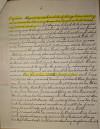
|
3.
1 January 1937.
Annual Report of Wawa and Karata for
1936, J. A.
Fisher, Moravian Church, p. 3.
" . . . laziness.
Never was such a state of things been
among us as now. Far too many deem
it a disgrace to do manual labour, and
so smart they are hard to be caught.
Turning now to the Spiritual side of the
work we find the same results growing
out of the hard time through which we
are passing. Finding it not as
easy as used to be to supply their
bodily needs, faith droops and love
grows cold, lukewarm, indifferent, fall
away: while others to acquire such
things sell their birthright like him of
old. ¶ All this does not
make pleasant reading yet nevertheless
true. Still we have yet those who
have not bowed the knee “to Baal” who
are still loyal, true and faithful.
Over these we can and do rejoice; they
give us joy, encouraging us to continue
because we are sure that our labour is
not in vain. Our Lord has still
his faithful few: such have not defiled
their garments, becoming ashamed to
their profession. Being thus
encouraged we will still press on in His
Name, trusting Him to give the increase
and bring them in; to His Own Honour,
praise and Glory as He has said. Much
sickness has been among our members,
even at this time a few are still down.
The writer of these lines too has had
his share for several months and is
still far from being his usual self yet
still tries to do a little. ¶
Sorry I cannot write an increase by
Confirmation, have had applications
surely but want of material things has
kept them back: neither were there any
couples married, . . . "
|
|
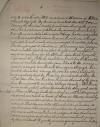
|
4.
1 January 1937.
Annual Report of Wawa and Karata for
1936, J. A.
Fisher, Moravian Church, p. 4.
" . . . only 4
were Readmitted, and several children of
Xtian parents baptized. By death
we have lost two old Com. Among the
members – mostly female ones – during
the year often had to settle cases of
discord: they so easily and readily take
offence at and from the simplest things
real or imagined. T hat to the credit of
the helpers it must be said was always
attended to and mostly were successful
to restore peace. One thing I
regret to mention is that among our
young male members I fail to see that
bright and energetic spirit so necessary
for the Xtians spiritual growth.
Too much they lack the ambition you’ll
find Karata. Several months during the
year I had to be away – first for a
couple months rest, then again through
enforced illness but always the services
were faithfully and regularly kept by
three lay preachers and helpers.
Of the three brn. [bretheren] one has
been towards the end of the year been
transferred to another village nearby –
Klellua – as an evangelist, where he
seems to be doing good work. ¶
Karata:
Here in things both Spiritual as well as
temporal the people are much ahead of
those in Wawa; readily one who is
acquainted with them and conditions in
general notices it. That they are
better Xtians I will not venture to say
because in both congregations there are
loyal and faithful ones, as well as
careless and indifferent ones; those
over whom we rejoice, and others that
cause constant grief by their conduct.
A goodly number of our female members .
. . "
|
|
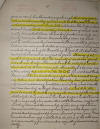
|
5.
1 January 1937.
Annual Report of Wawa and Karata for
1936, J. A.
Fisher, Moravian Church, p. 5.
" . . . gives us
much trouble and worry through their
very querulous, malicious dispositions
and bad tongues, hence it is that
preceding each Lords’ Table celebration
the helpers have several hours work in
settling discords, some of which are
pretty hot and stubborn. Scarcity
of food is not half as keenly here as in
Wawa; true some days some are hard put
to - not because they have none, but
because their plantations are at a good
distance away, for several it requires a
whole day or night travelling to get to
it; but the need of other necessaries
are just as great. Having got used
to foreign foot stuff, the majority of
Indians find it hard not to adjust
themselves and be satisfied with that
which they do have or can get.
This village also was one of those
wholly dependent on the B.B. Co. for
work and Cash. Now since the Co.
has closed down, support has ceased
causing distress and dissatisfaction.
Had they been practicing self-denial and
economy, conditions as it really is now
would not have been half as tough
because these used to be the most
favoured by said Co, enjoying the cream
of the milk. Naturally this being
such as it is has had its effect on the
church and consequently the result is
that all Collections suffer.
Looking closer into the inner life of
this congregation however we still have
encouragement and visible signs of
growth, development and progress.
Several of our young male members have
been appointed to take the place of the
old ones as helpers and lay preachers,
and are acquitting themselves
creditably."
|
|
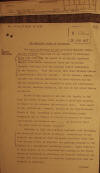
|
1.
20 February 1937.
The Mosquito Coast of Nicaragua, by the
British Foreign
Office, p. 1.
"The white
settlement of the so-called Mosquito
Coast, now the Atlantic coastline of the
Republic of Nicaragua, dates from 1630
when the agents of an English chartered
Company established themselves there and
cultivated friendly relations with the
original Indian inhabitants of the
district. From 1655 until 1850
Great Britain claimed a protectorate
over the Indians. Little success,
however, attended the various endeavours
to plant colonies and the British
protectorate was disputed by Spain and
subsequently the Central American
Republics, and also by the United States
of America. ¶ United States
opposition was due very largely to the
fact that Great Britain would acquire a
privileged position in regard to the
proposed inter-oceanic canal. This
aspect of the question was, however,
settled by the Clayton-Bulwer Treaty of
1850, according to which both Powers
pledged themselves not to “occupy or
fortify or colonise or assume or
exercise any domination over …… the
Mosquito Coast (or other parts of
Central America)”. ¶
Moreover in 1860 Great Britain concluded
with Nicaragua the so-called first
Treaty of Managua, transferring to the
Republic the suzerainty over the entire
Caribbean Coast from Cape Gracias a Dios
to Greytown, but granting autonomy to
the Indians in a specifically delimited
reserve. Under Article 4 of this
Treaty, it was stipulated that nothing
in the Treaty should be construed as
preventing the Mosquito Indians at any
future time from agreeing to absolute
incorporation into the Republic of
Nicaragua. . . . "
|
|
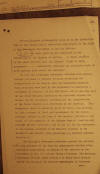
|
2.
20 February 1937.
The Mosquito Coast of Nicaragua, by the
British Foreign
Office, p. 2.
" . . . Various
disputes subsequently arose as to the
interpretation of this Treaty and in
particular with regard to the right of
the Nicaraguan Government to tax the
Indians. ¶ In 1870 the whole
question was submitted to the
arbitration of the Emperor of Austria.
A report attached to his award declared
that the Indians “right of
self-government …… undoubtedly comprises
the exclusive right of self-taxation
both direct and indirect.” ¶
In 1894 the Nicaraguan Government
obtained from certain Indians petitions
of doubtful validity requesting the
Incorporation of the Reserve into the
Nicaraguan Republic. These
petitions were held by the Government to
constitute a fulfillment of Article 4 of
the 1860 Treaty and in the same year the
so-called Mosquito Convention was
concluded between the Indians and the
Government providing for the
Incorporation of the former Reserve as a
department of the Republic. This
Convention, which is nominally still in
force, also provides (a) for a measure
of local self-government for the Indian
villages, subject to the laws of the
Republic (Articles 1 and 5-10), (b) for
exception of the Indians from all
taxation and military service (Articles
3 and 4) and (c) for the employment of
all revenues produced in the Mosquito
littoral to the district’s own benefit,
thus preserving the economic autonomy
(Article 2). ¶ His Majesty’s
Government protested against the
validity of this procedure at the time
but subsequently decided after
protracted negotiations to dispose of
the question by the conclusion in 1903
of a second treaty of Managua (the
Harrison-Altamirano Treaty) under
Article 2 of which Great Britain agreed
“To recognize the absolute sovereignty
of Nicaragua . . . "
|
|
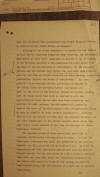
|
3.
20 February 1937.
The Mosquito Coast of Nicaragua, by the
British Foreign
Office, p. 3.
" . . . over the
territory that constituted the former
Mosquito Reserve as defined in the
(first) Treaty of Managua.” ¶
Although it was found impossible to
secure for the Indians in this treaty
complete exemption from taxation, the
Nicaraguan Government on their part
undertook in Article 3 (a) to “submit to
the National Assembly a law exempting
for fifty years from the date of the
ratification of this Treaty, all the
Mosquito Indians and the Creoles born
before the year 1894 from military
service, and from all direct taxation on
their persons, properties, possessions,
animals and means of subsistence.”
The same Article 3 also contains certain
guarantees in respect of the Indian
lands and provides further (paragraph
(e)) that “in the event of any Mosquito
Indians or Creoles proving that the land
which they held in conformity with the
regulations in force before 1894 have
been claimed by and allotted to other
persons, the Government will indemnity
them by the grant of suitable public
lands of approximate value as near as
possible to their present residences”.
Moreover Article 5 of the Treaty
provides that the Mosquito Indians, and
the other inhabitants of the former
Reserve, shall enjoy the same rights as
are secured by the laws of Nicaragua to
other Nicaraguan citizens. ¶
The implementation of these provisions
gave rise to continual difficulties for
many years to come. In 1928 the
Nicaraguan Government had still not
submitted to the National Assembly the
Bill provided for in Article 3 (a).
In reply to representations they
invariably pointed out that the Article
did not provide for the submission of a
Bill within a definite time limit and
also that since the provisions
stipulated in the Treaty with regard to
taxation had always in practice been
complied with, the introduction of a
Bill was in any case unnecessary. . . .
"
|
|
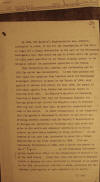
|
4.
20 February 1937.
The Mosquito Coast of Nicaragua, by the
British Foreign
Office, p. 4.
" . . . In 1928,
His Majesty’s Representative was,
however, instructed to press, if not for
the introduction of the Bill, at least
for a formal declaration on the part of
the Nicaraguan Government that they
would now and in future until the period
of fifty years specified in the Treaty
elapsed, ensure to the Mosquito Indians
the guarantees specified in the Treaty.
¶ This declaration was, however,
not forthcoming and in 1931 the matter
was reconsidered. It was then
pointed out that since the exemption
from taxation which the Nicaraguan
Government undertook to grant by the
Treaty of 1905, only applied to Indians
born before the year 1894, the number of
individual appeals from Indians had
naturally tended to diminish with time.
His Majesty’s Minister at Guatemala
reported in August 1931 that the
Nicaraguan Minister for Foreign Affairs
had visited the Mosquito Coast in
February 1930 and that since that time,
no specific complaints had come to his
notice. In these circumstances it
was suggested that His Majesty’s
Government’s interest in the Treaty was
becoming somewhat academic and His
Majesty’s Representative at Managua was
instructed to “consider each case which
may arise on its merits and endeavor
unofficially to obtain redress in cases
where hardship is being suffered.”
He was however at the same time
instructed to press for a formal
declaration on the lines requested in
1928. This was eventually
forthcoming in 1932, when a decree was
passed on the 6th August by the
Nicaraguan Government giving legislative
effect to the stipulations of Article 3
(a) of the 1905 Treaty. Since that
time, His Majesty’s Representative at
Managua has been instructed to continue
to be guided by the 1931 instructions
referred to above, providing for the
informal investigation of each complaint
on its merits. . . . "
|
|
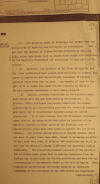
|
5.
20 February 1937.
The Mosquito Coast of Nicaragua, by the
British Foreign
Office, p. 5.
" . . . (1) The
Atlantic coast of Nicaragua has always
been the unruly home of banditry and
birthplace of revolutions. Thus is
was that the murders of eleven British
subjects in 1931 and 1932, which have
given rise to unsatisfied claims for
compensation by His Majesty’s Government
all took place in that part of the
country. ¶ (2) Moreover, the
district is far from the capital and the
local authorities have always been
difficult to control and cases of
oppression and unjustifiable treatment
of British subjects arise from time to
time. An example of this is the
case of W. E Lewis and other British
subjects on which a further separate
memorandum is also being prepared.
¶ (3) Thirdly, economic conditions
on the Atlantic coast have always been
bad and have recently deteriorated. In
October 1935 a hurricane practically
destroyed the banana plantations in all
the northern part and the resulting
unemployment gave rise to considerable
distress among the native population.
It is also claimed that the Nicaraguan
Government spend most of the money which
they raise in taxation of the Mosquito
district in other parts of the Republic,
and so administrative steps have been
taken to improve the lot of the Indians.
The present administration of General
Somoza, which has been in power since
June 1936, claims to be making an effort
to deal with this state of affairs, but
conditions are still so bad that His
Majesty’s Charge d’Affaires has describe
them as lamentable. The precarious
economic position of the district has in
recent years given rise to various
complaints from the Indians and to
petitions for British protection and
even for the incorporation of the
Mosquito Coast in the British Empire.
These complains and petitions are mostly
based on an inadequate knowledge of the
provisions of the 1905 Treaty and
exaggerated . . . "
|
|
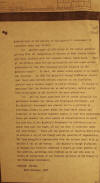
|
6.
20 February 1937.
The Mosquito Coast of Nicaragua, by the
British Foreign
Office, p. 6.
" . . .
expectations of the ability of His
Majesty’s Government to intervene under
that Treaty. ¶ (4) Another
cause of difficulty is the racial
question arising from the immigration of
Creoles of West Indian origin, and their
disputes with the original Indian
inhabitants. Many of the Creoles
claim British nationality and one comes
across preferences to “the five thousand
British subjects on the Mosquito coast”.
In fact, the number would appear to be
under one thousand. In 1932 His
Majesty’s Charge d’Affaires stated that
there were 300-400 British subjects in
the Bluefields district and a similar
number in Puerto Cabezas. It
should be mentioned that the Creoles are
no new arrivals, having mostly been
established in the district for many
generations. ¶ (5) All the
above questions are of course primarily
for settlement between the Indian and
Nicaraguan Government, and His Majesty’s
Government are clearly not in a position
to intervene, except in cases where the
legitimate rights and interests of the
British subjects appear to have been
threatened. There are however two
other causes of dissatisfaction in which
the position of His Majesty’s government
is different, and in which they have the
right, if not the duty to intervene
under the 1905 Treaty. These are
the question of taxation dealt with in
Article 3 (a) of the Treaty and the
question of compensation for land
wrongfully expropriated from the natives
death with in Article 5 (e) of the
Treaty. His Majesty’s Charge
d’Affaires at Managua has recently
submitted a report on these aspects of
the question, providing such evidence as
he has been able to obtain of
infractions of the relevant articles of
the Treaty by the Nicaraguan Government.
¶ FOREIGN OFFICE, ¶
20th February, 1937"
|
|

|
January
1939.
Meet Nicaragua, by
Kenneth Hamilton
(Bethlehem PA: Comenius Press,
1939 - cover pages), p. 1.
(Source:
NA127/E38/Box 20)
|
|

|
January
1939.
Meet Nicaragua, by
Kenneth Hamilton
(Bethlehem PA: Comenius Press,
1939 - Map of Moravian Missions in
Nicaragua), p. 2.
(Source: NA127/E38/Box
20)
|
|
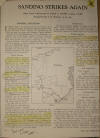
|
1.
February 1939.
"Sandino Strikes Again," by USMC
Capt. John C.
Wood, in The Leatherneck,
Feb. 1939, p. 1.
|
|
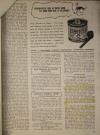
|
2.
February 1939.
"Sandino Strikes Again," by USMC
Capt. John C.
Wood, in The Leatherneck,
Feb. 1939, p. 2.
|
|
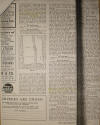
|
3.
February 1939.
"Sandino Strikes Again," by USMC
Capt. John C.
Wood, in The Leatherneck,
Feb. 1939, p. 3.
|
|
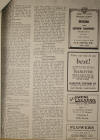
|
4.
February 1939.
"Sandino Strikes Again," by USMC
Capt. John C.
Wood, in The Leatherneck,
Feb. 1939, p. 4.
|
|
|
|
|
PREVIOUS
NEXT |
|
|
|
|
|
|
|
